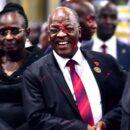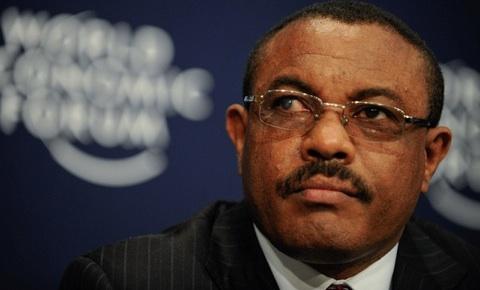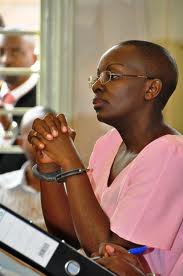“Here they’re safe”: The girls club that emerged when Kenya’s schools closed
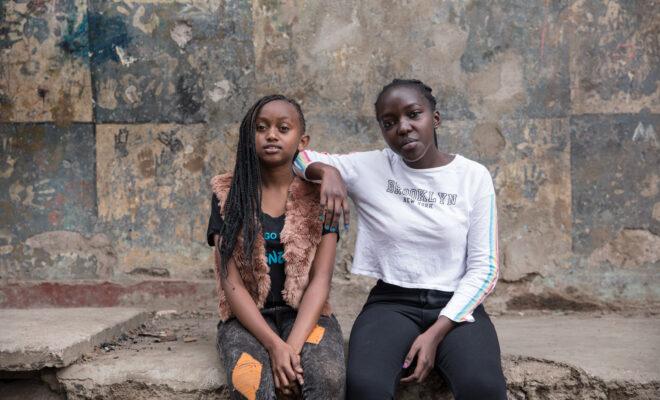
When Kenya’s school closed, many children were left more vulnerable. Some local volunteers took it upon themselves to step in.
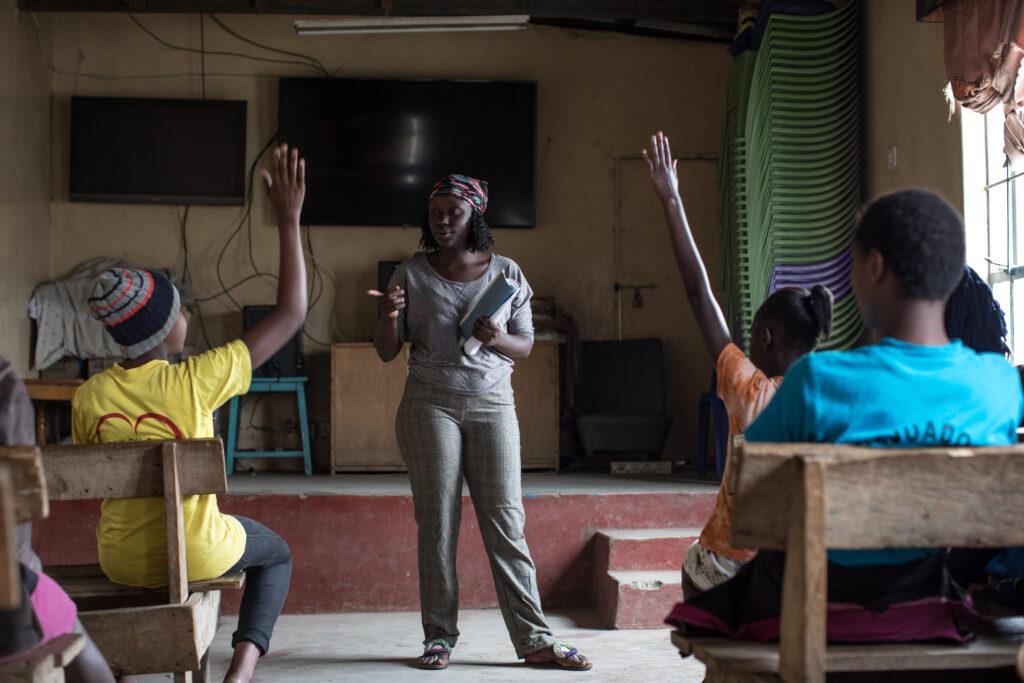
19 October. Winnie Achieng’ at the One Development Centre leading a discussion during a Girls on the Move session. Credit for all photos: Sarah Waiswa for The Everyday Projects.
On the first floor of a social hall in Mathare, Nairobi, a group of girls lift their hands in response to a question. Christine, 17, is picked to speak. “A relationship is when two people or more who have a connection with each other, like a girl and her sister,” she answers confidently.
In the session, they go on to discuss familial, friendship, and romantic relationships.

These girls are taking part in a workshop organised by Winnie Achieng’, 23. When Kenya’s schools were closed due to COVID-19 earlier this year, she noticed that many teens in her neighbourhood were idle and more vulnerable to sexual abuse. She decided to set up a programme that engages teenage girls with educational and social activities. The workshops offer experiential and engaging lessons that promote the safety and wellbeing of teen girls.
“In the pandemic, many things — including disrupted schooling, cases of defilement, police brutality, and the virus itself — are beyond our control. Many paedophiles take advantage of teen girls by luring them with pocket money, sanitary pads, or even clothes and snacks,” says Winnie.
“So far, we’ve not had any of these cases where young girls get pregnant in Huruma, so that’s a positive report for us,” she adds.
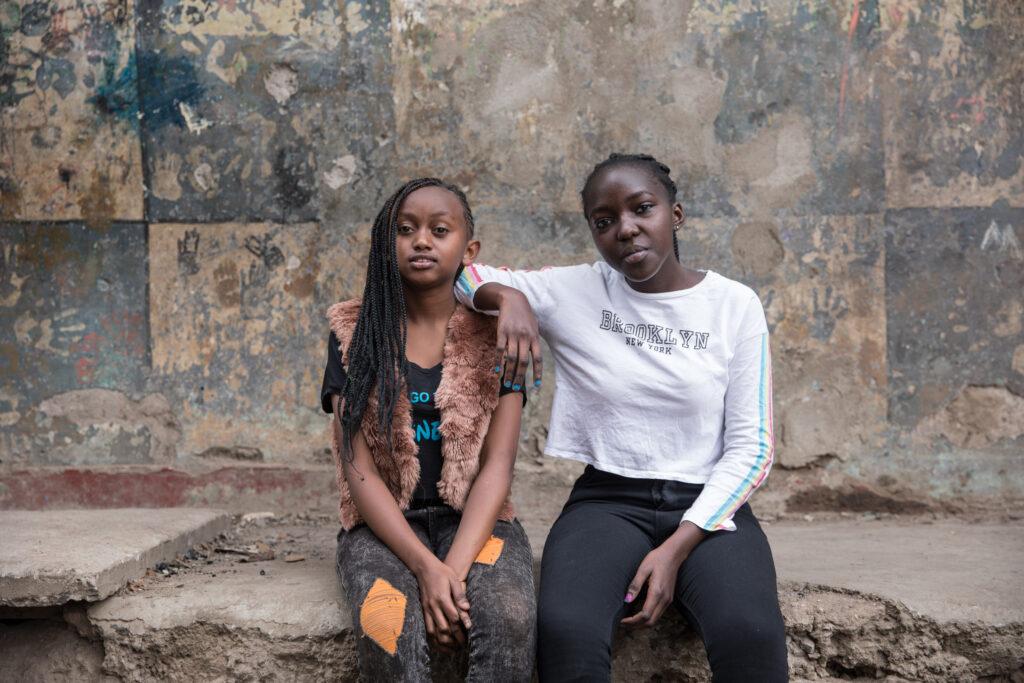
Shameem, 14, and Alicia, 17.
When they first started, Winnie and volunteer Sarah Milanoi, 27, taught just 15 girls. Today, they cater to 40 girls, separated into two cohorts. The workshops have become central to the development of community-driven safe spaces where young girls can convene daily.
Shameem, 14, emphasises the importance of the safety the space provides. “We know of these cases of rape and defilement, so we encourage our friends in our neighbourhood to join us here during the day because we get to stay and work together,” she says.
“The workshop keeps us busy, and when I hang out with my age mates, it is way better than staying in the house the entire day,” adds Alicia, 17.
However, the girls also note the benefits of peer-to-peer tutoring at the sessions which helps mitigate the lack of schooling.
“When we come here, we remind ourselves about our schoolwork, because it has been almost seven months since we were at school,” says Shameem.
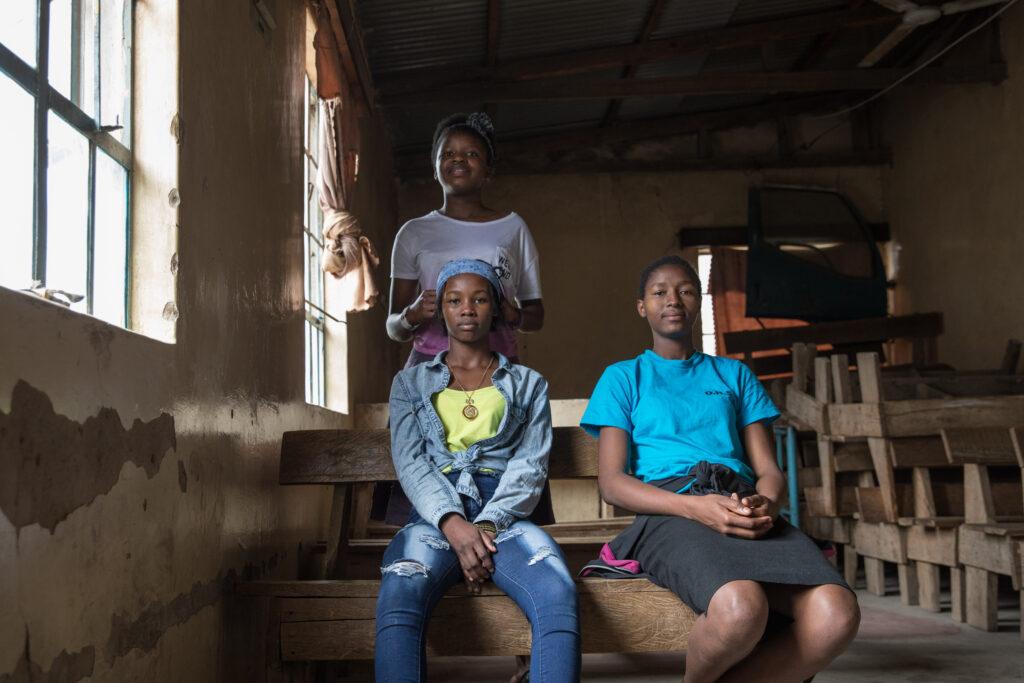
Adelaide, 14, Christine, 17, and Jackline, 13, wait for the Gils on the Move group meeting to start.
“All our parents are doing their best to earn a living and cater for our needs especially now that we have been home. Sometimes I experience some things that I cannot tell my parents because I do not want to overwhelm them,” says Christine, 17. “When we come to these sessions, Winnie listens to each of us. She is like our sister, friend, even mother.”
“She organises for us to get sanitary towels too,” chimes in Jackline, 13.
“We also regularly discuss about the importance of staying away from situations that would put us in trouble. Winnie, [volunteer] Akinyi and Sarah often give us advice to know how to report sexual harassment and abuse” adds Adelaine, 14.
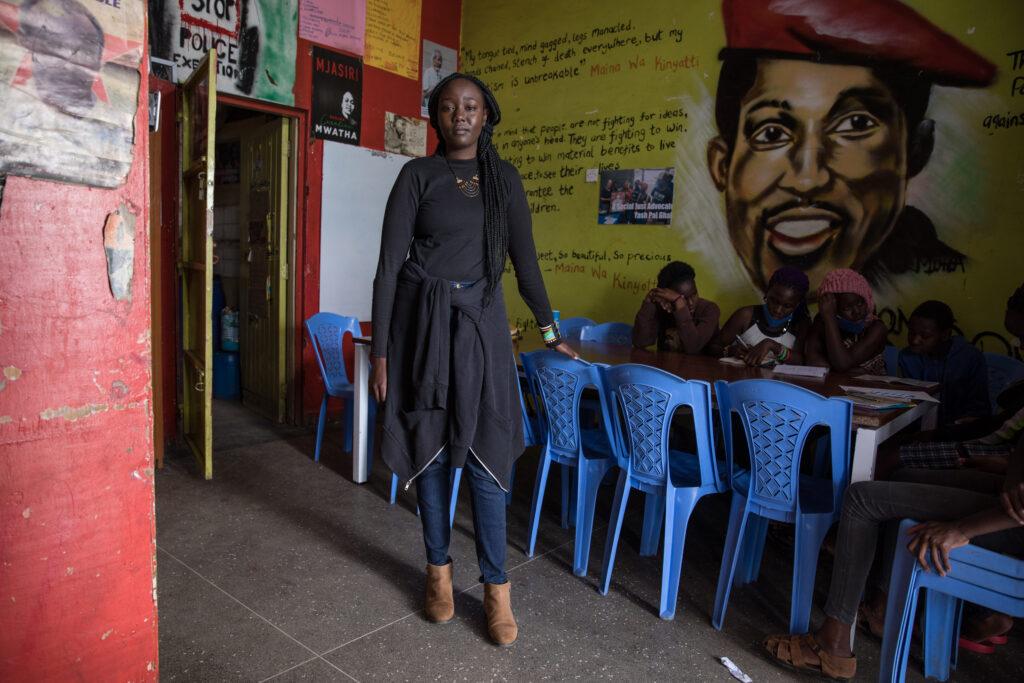
Sarah Milanoi, 27.
Sarah, 27, is a volunteer at the workshop. She supports Winnie by teaching topics that include reproductive and menstrual health, sexual consent, how to build healthy relationships, sexual safety, and birth control.
“Conversations about sexual abuse are a part of the safety conversations we have often. The girls are learning the importance of speaking up, how to take care of their friends, and listening to their gut when they sense something isn’t right,” says Sarah.
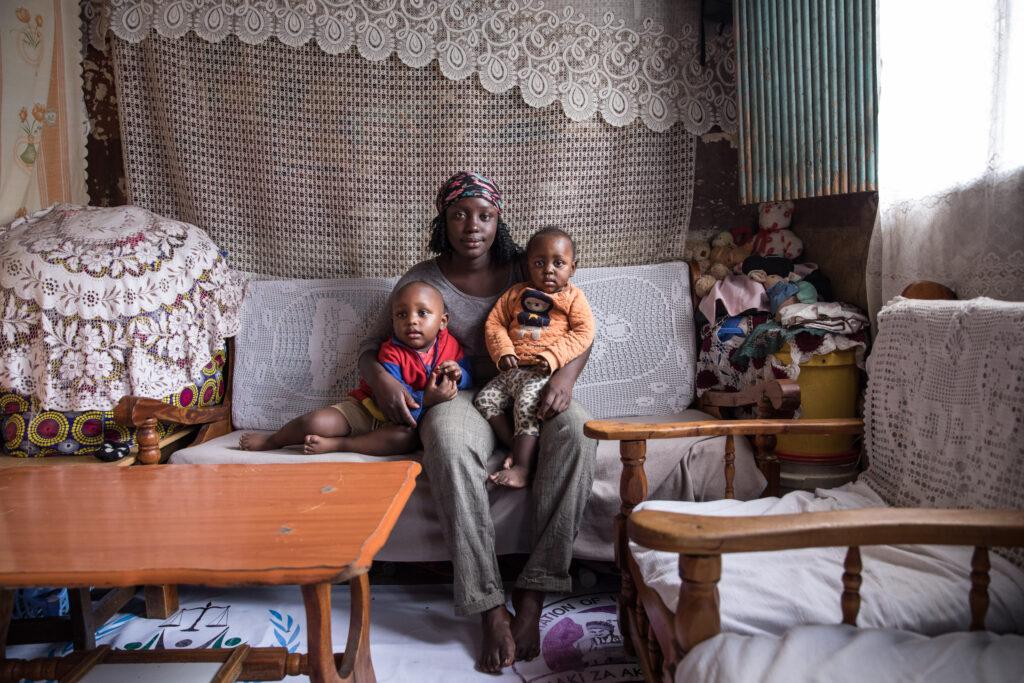
Winnie in her home with her children Reggie (2) and Rhian (1).
Like many Kenyans, Winnie tuned into the news in April and heard about the uptick in teen pregnancies in Kenya, though some of the statistics that have been widely cited have been questioned as can be seen in the data visualisation below.
Nonetheless, the young mother of two did not have to go so far to realise the effects that school closures were having on teenagers in her neighbourhood of Huruma in Mathare.
“Health care facilities are obviously focusing on the threat posed by coronavirus, so I figured that issues of reproductive health and sexual abuse in my neighbourhood would naturally be sidelined,” she says. “Having grown up here and raising my kids here, I know my neighbourhood very well. I just got worried that the pandemic restrictions would make it harder for girls to access information on how to identify and report sexual abuse and paedophilia.”
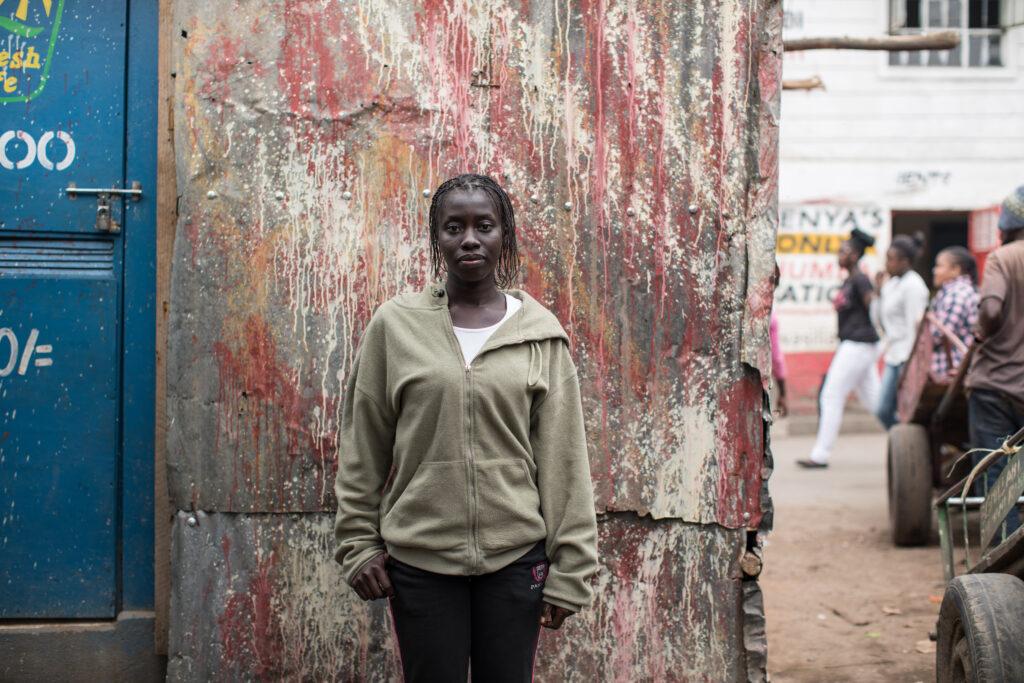
Mary Meul, 23.
The initiative relies on volunteers who came across the workshops through different routes.
“A few weeks after schools were closed, I heard about a recruitment of Community Health Volunteers here in Huruma,” says Mary Meul, 22. “Each of us was designated several households where we visit and evaluate what support is needed. We started with informing people about the importance of mask-wearing and hand-washing since the coronavirus was slowly spreading.”
A few weeks after she started volunteering, Mary heard about a young girl in her ward who was defiled in her home. “She was only ten years old. That agitated me very much. After that case, my friend Akinyi and I joined Winnie at her workshop. We encourage teen girls in different wards in Mathare to join us at the social hall daily.”
“Here, they are safe, even though it’s for a few hours.”
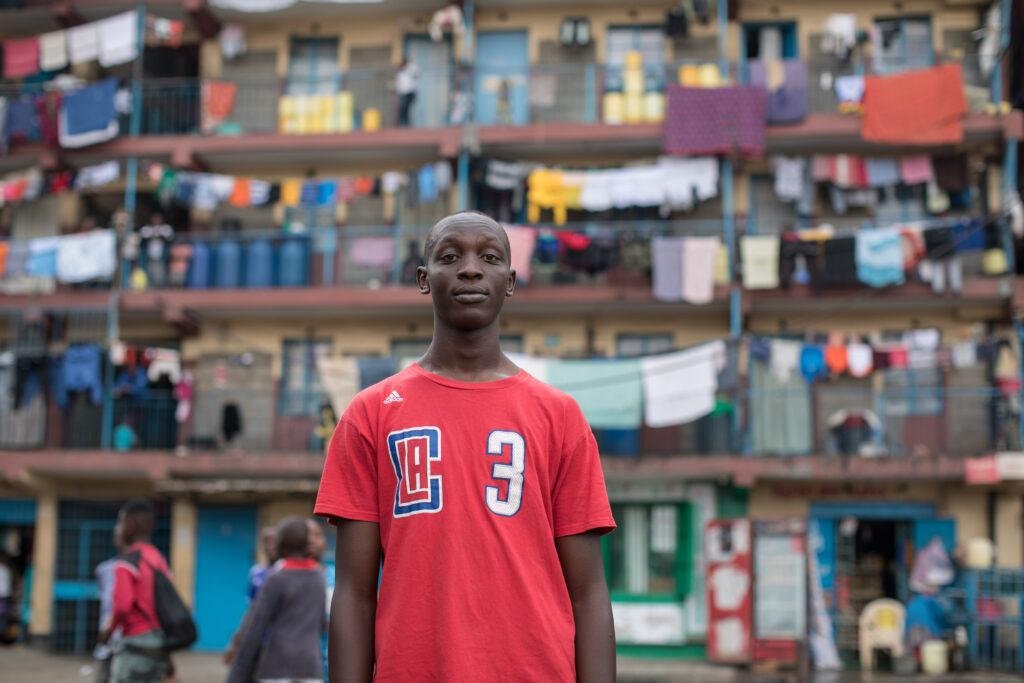
Charles, 17.
Winnie also yearns to run activities for boys, but this has proven challenging so far.
“Boys need a different kind of programming,” she says. “They cannot sit still for hours like the girls. A sports-based workshop would work well, but I have not found the resources to cater for the basics, like a playing field, soccer balls, and such essentials.”
Under lockdown restrictions, boys have also faced grave difficulties. “When schools closed, everything changed,” says Charles, 17. “I have to take care of my siblings so I sought to look for an income. At first, I involved myself in some bad company because they offered to pay me.”
A few weeks after joining a gang, Charles saw his best friend killed in front of him. “I did not want that for myself so I started selling second-hand children’s clothing to earn some money,” he says. “Running this business is not easy at all, but it is safer for me.”
“Teen boys are not exempt to the effects of the schools being closed,” says Winnie. “Most of the parents to these children have lost their sources of livelihoods due to the pandemic making their already strained living conditions much worse. So many teenagers like Charles support their families by running small businesses.”
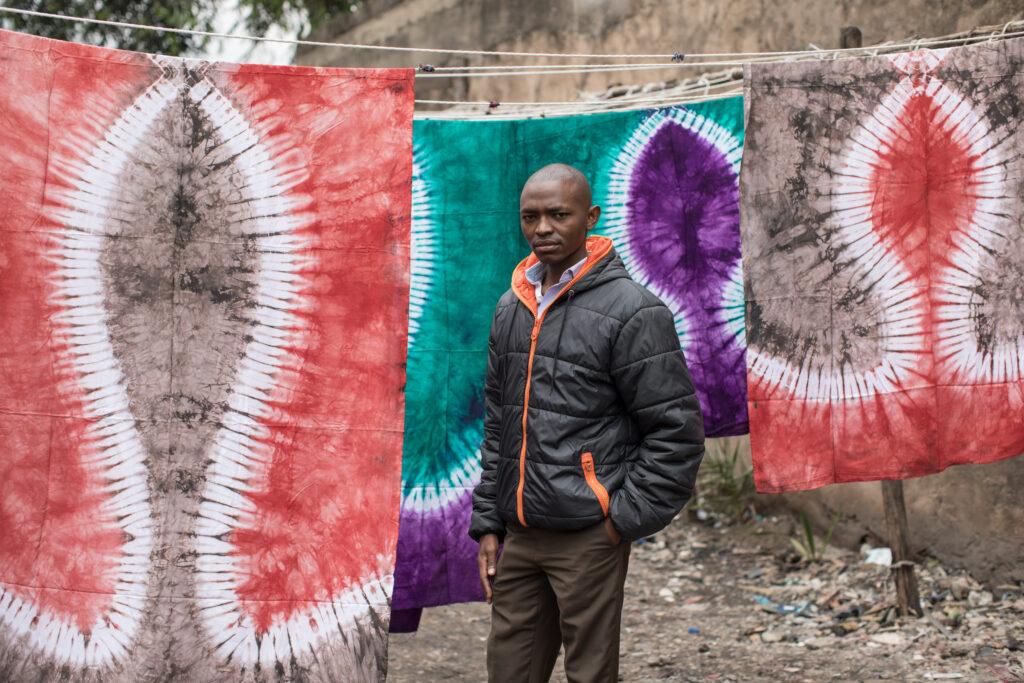
Andrew Muli, 26.
When Kenya’s school closed, Winnie was not the only person to act. Andrew Muli, 26, a teacher at a high school in Mathare found a new way to continue teaching when face-to-face lessons were no longer possible.
“We have a WhatsApp group that has around 100 students. I share some notes and quizzes, and the students who can access them send their answers to me,” he says. Muli teaches four virtual classes a week but, as with Winnie’s workshops, many young people are not able to be reached by the initiative.
“Attendance is very low because only 20% of the students can access the WhatsApp channel. Most students who participate in these mobile lessons use their parents’ phones. That means they are restricted to their parents’ working hours and limited data resources.”
Moreover, his lessons cannot replicate the face-to-face support that students would receive in school and that Winnie’s workshops are trying to provide. “In school, students could also easily talk to any teacher about issues they experienced and we would not only try to assist, but also listen to them. It’s impossible to offer the same assistance virtually,” says Andrew.
Photography by Sarah Waiswa.
Interviews by Wacera Njagi.
This reportage was supported by Code for Africa and the Pulitzer Centre on Crisis Reporting.


